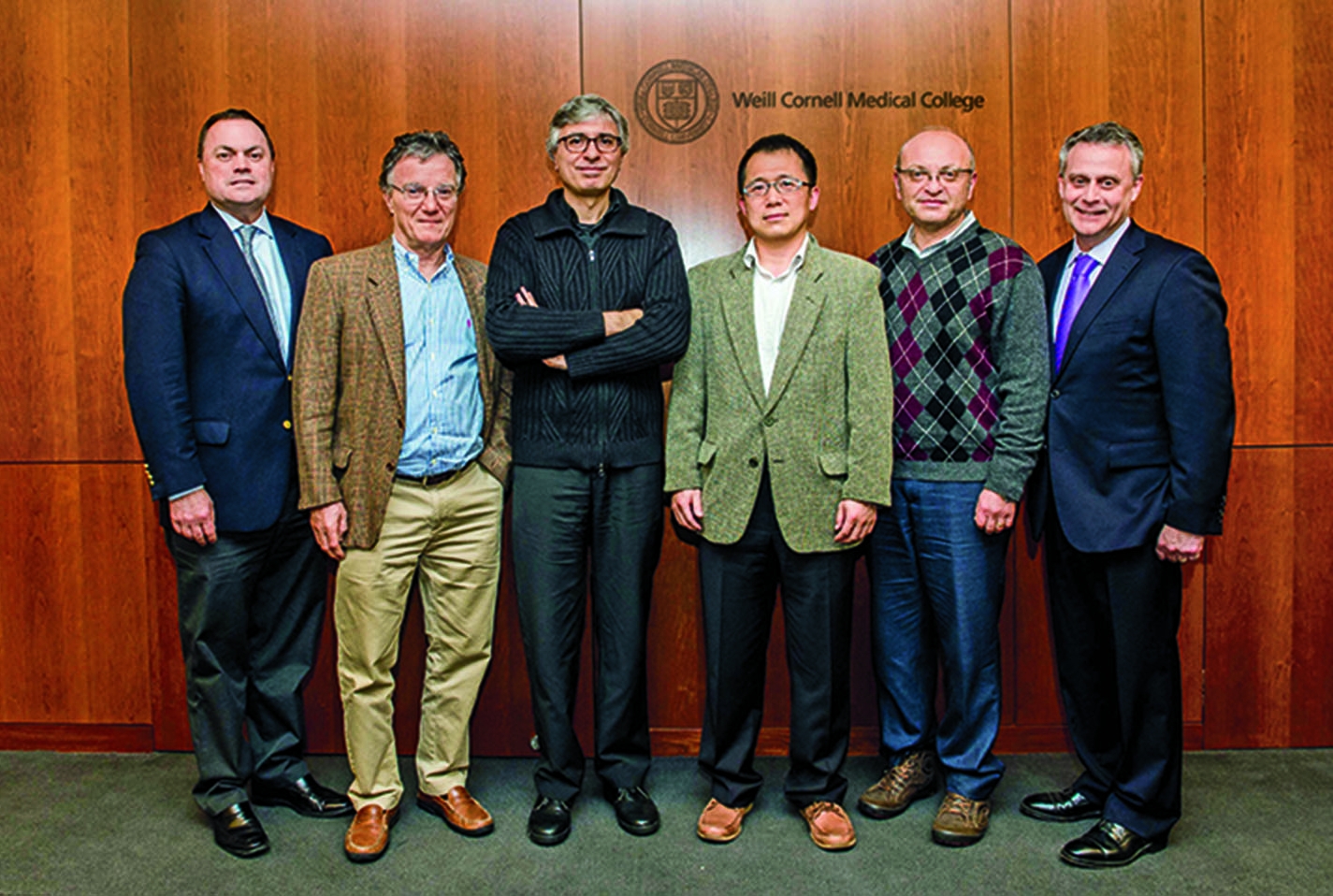Six Weill Cornell scientists have been selected as winners of the Daedalus Fund for Innovation, a new medical college program that helps advance promising early-stage applied and translational research that has commercial potential.
The investigators, Drs. Peter Goldstein, Gang Lin, David Lyden, Stefano Rivella, Enrique Rodriguez-Boulan and Vladislav Sandler will each receive up to $100,000 one-year grants that fund studies demonstrating that their early-stage discoveries can be translated into effective treatments for patients. An independent advisory committee comprised of a Weill Cornell faculty member and experts from the biopharmaceutical and venture capital industries selected the projects from nearly 30 applications for the Daedalus Fund's first round of funding.
"The Daedalus Fund is helping us mobilize and innovate," said Larry Schlossman, managing director of BioPharma Alliances and Research Collaborations at Weill Cornell, who manages the Daedalus Fund. "That's incredibly exciting. I see so much rich opportunity in Weill Cornell's research enterprise, but some of the projects need a little help getting across the finish line or getting to the proverbial take-off point where they will be viewed favorably by industry as potential candidates for further development."
Established by Weill Cornell Dean Dr. Laurie H. Glimcher earlier this year, the Daedalus Fund is designed to help Weill Cornell investigators make their research more appealing to the biopharmaceutical industry. Investors require "proof of concept" — for instance, data derived from testing in animal models or the development of a new biomarker — as the standard by which they determine whether a project is ready for funding.
While grants from the National Institutes of Health or other agencies fund basic science research, they often don't provide enough money to cover these "proof of concept" studies. This funding gap is one of the greatest obstacles scientists face when trying to advance early-stage discoveries into next- generation treatments.
"We are extremely thankful that Weill Cornell came up with this program," said Dr. Rodriguez-Boulan, the Charles and Margaret Dyson Professor in Ophthalmology Research and a professor of cell and developmental biology, who up until now has received small, short-term grants from small foundations to investigate a new drug to treat incurable blinding diseases, such as Stargardt disease and age-related macular degeneration.
"With this grant from the Daedalus Fund, we will really be able to study the most important aspects in terms of developing drugs for human use. That means showing in animals that our drug can cure these diseases. Once you show that, you are one long step closer to a treatment in humans."
A Potential New Treatment for Nerve Pain
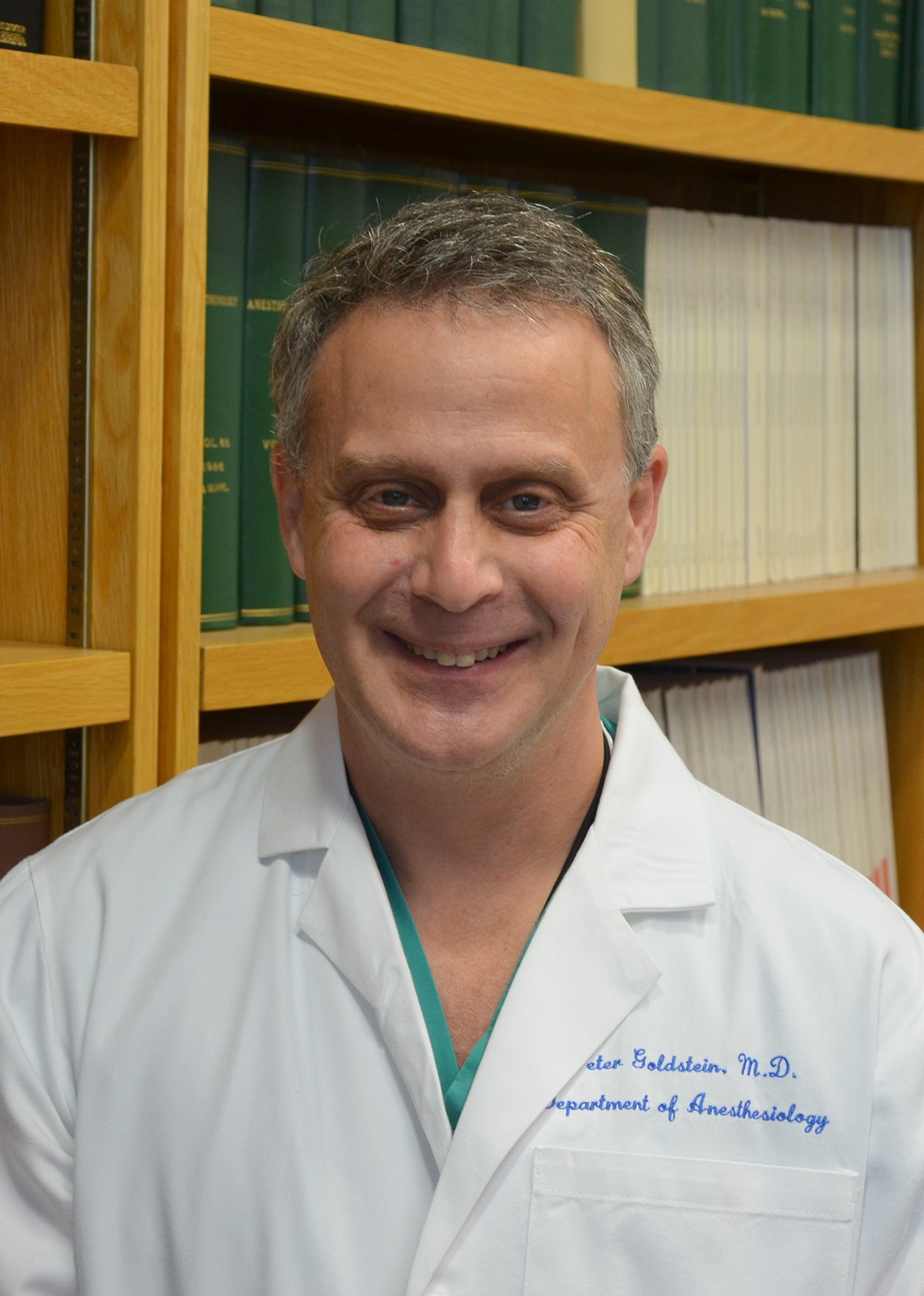
Dr. Peter Goldstein
At least 20 million adults in the United States suffer from chronic and often intense nerve pain caused by the abnormal activation of the control system for a group of cells in the peripheral nervous system. This channel protein, known as HCN, helps regulate how neurons function and react to stimuli. While the most common treatment is one or more pain medications, none of them work particularly well and often carry risk of serious side effects including addiction.
Weill Cornell anesthesiologist Peter Goldstein and colleagues at Weill Cornell Medical College found that the general anesthetic propofol can block the activity of the protein, potentially offering relief to pain sufferers — but at a cost. Used by anesthesiologists for surgical sedation and anesthesia, propofol is too powerful a drug for use outside of an operating room setting and, if abused or misused, can be fatal. (King of Pop Michael Jackson died from an overdose.) But with this preliminary finding, supported by the Weill Cornell Department of Anesthesiology, too promising to dismiss, the collaborators dug deeper and discovered a molecule that is structurally similar to propofol — it blocks the same channel protein and provides pain relief — but lacks its sleep-inducing properties.
The Daedalus award will allow Dr. Goldstein's lab to test novel, related compounds synthesized in the lab of co-investigator Dr. Anthony Sauve, an associate professor of pharmacology at Weill Cornell, in an animal model of chronic pain to see if they have the same pain-relieving effects as propofol and the related non-anesthetic compound. If successful, Dr. Goldstein hopes at least one of them can then be developed into a new drug to treat the condition.
"This is a lifeline," said Dr. Goldstein, a professor of anesthesiology and an associate professor of medical ethics (in medicine), of the grant award. "This keeps the project going to pursue what we think is a very promising line of investigation."
Innovative Treatments for Inflammatory Bowel Disease
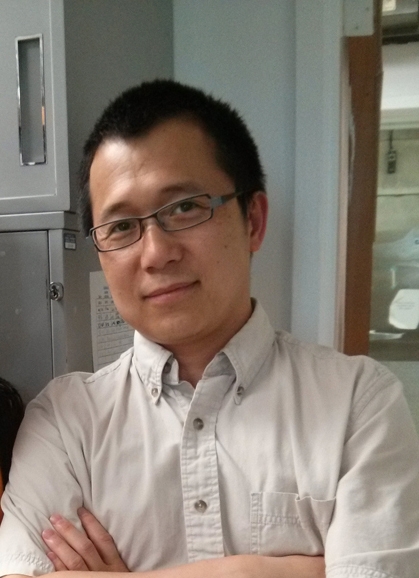
Dr. Gang Lin
A few years back, Weill Cornell scientist Gang Lin designed a class of inhibitors that selectively targeted an enzyme expressed in tuberculosis. While the proteasome is also present in various forms in the human body, tuberculosis is the only known pathogenic bacterium to express it. The enzyme is critical to TB's ability to defend itself against its human host. Dr. Lin, an associate research professor of microbiology and immunology, designed drugs that inhibited the bacterium's proteasome more potently than its host's, killing the parasite while likely avoiding collateral damage in the patient.
At the time, inflammatory bowel diseases were the furthest thing from Dr. Lin's mind. Then in 2009, a paper was published in Nature Medicine describing the therapeutic potential of an immunoproteasome inhibitor in autoimmune diseases.
One form of proteasome in humans is called the immunoproteasome, which plays pivotal roles in immune responses. The 2009 paper showed that immunoproteasome selective inhibitors effectively reduced inflammation in mice that had type I diabetes and arthritis. Later research confirmed that finding, and also showed efficacy in mice with colitis, multiple sclerosis and lupus. While the inhibitors were groundbreaking in their therapeutic potency, scientists found them to be reactive, irreversible and unstable.
Taking advantage of his expertise in proteasome inhibitor design, Dr. Lin's team investigated and synthesized two classes of compounds that do not react with the immunoproteasome. Now, armed with funding from the Daedalus Fund, he will test them on mice that mimic human Crohn's disease — a common form of debilitating inflammatory bowel disease. He is working with Dr. Carl Nathan, chairman of Microbiology and Immunology and the R.A. Rees Pritchett Professor of Microbiology; Dr. Xiaojing Ma, a professor of microbiology and immunology and of microbiology and immunology in pediatrics; Dr. Jane Salmon, a professor of medicine and of medicine in obstetrics and gynecology, as well as a rheumatologist at Hospital for Special Surgery; and Dr. Franck Barrat, a professor of microbiology and immunology at Weill Cornell and a senior scientist in Hospital for Special Surgery's Autoimmunity and Inflammation Program.
"We are extremely grateful and very pleased to receive a grant from the Daedalus Fund," Dr. Lin said. "The fund really provides us an opportunity to demonstrate these compounds' efficacy and lack of toxicity in mice — a critical step in drug research and development."
A Liquid Biopsy for Cancer
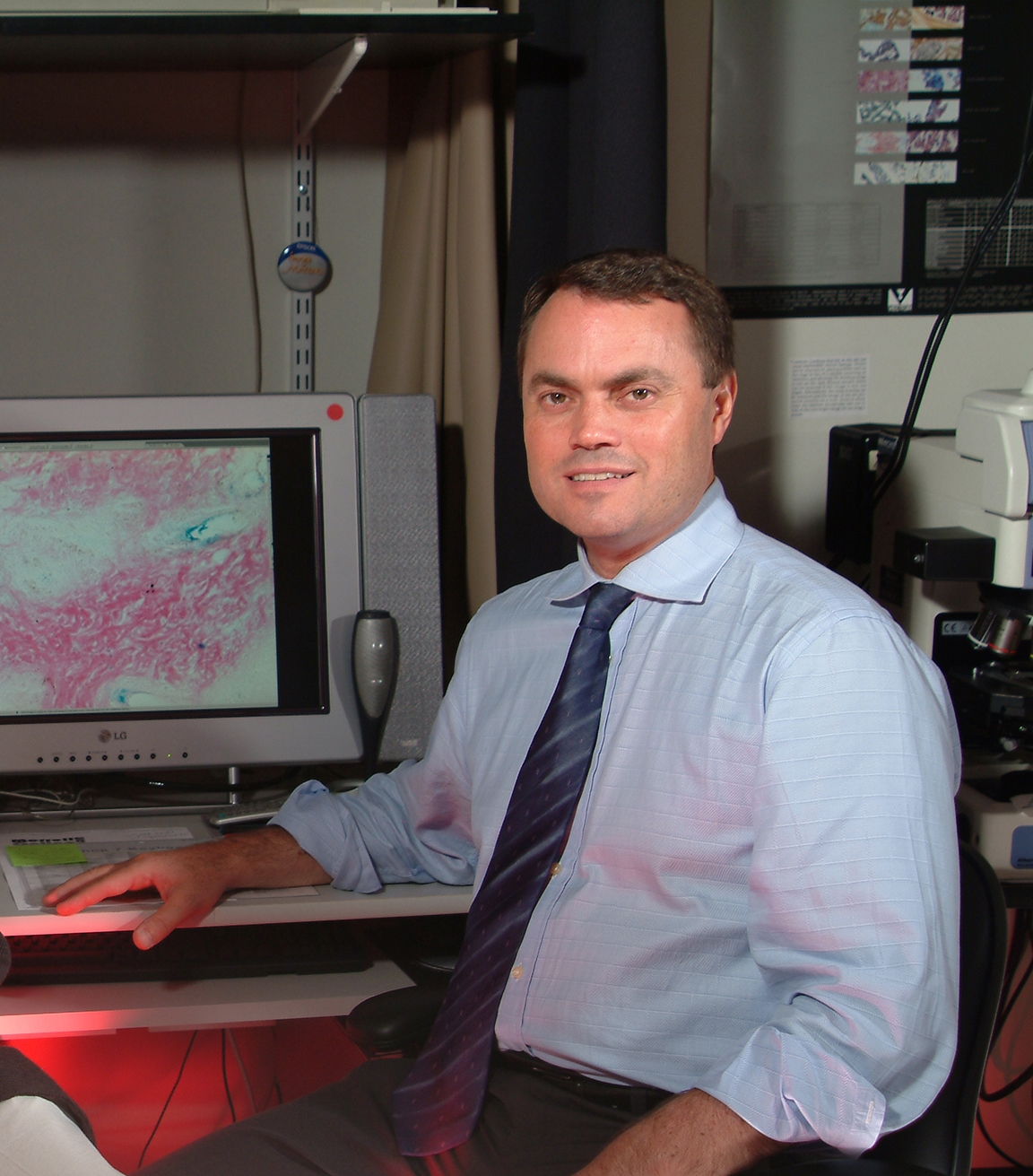
Dr. David Lyden
Invasive needle biopsies are the only way to tell whether a patient's cancer is responding to its prescribed treatment — and oftentimes the answer comes too late. By the time oncologists learn that the treatment isn't working, likely due to a mutation causing resistance, the cancer has likely already spread.
But that may soon change. David Lyden, the Stavros S. Niarchos Professor in Pediatric Cardiology and a professor of pediatrics and of cell and developmental biology, together with Dr. Hector Peinado Selgas, an assistant professor of molecular biology in pediatrics, have developed a blood test that isolates small, spherical tumor-secreted packages containing protein, RNA and DNA from patients' bloodstreams. Cancer cells release these vesicles, known as exosomes, which use the bloodstream to travel around the body and spread the seeds for metastasis.
Dr. Lyden believes his liquid biopsy can quickly determine how effective a cancer patient's treatment is by measuring the number and content of exosomes circulating in that patient's blood, ultimately leading to personalized treatment approaches. He also hypothesizes that the test can predict future cancer metastasis. The Daedalus Fund grant will enable Dr. Lyden to characterize and analyze the protein and DNA content of tumor exosomes. Ultimately, he will use that information to develop a platform that can identify and screen patients for biomarkers in melanoma, breast and prostate cancers.
"I was pleased that the reviewers funded a project that's considered ‘out of the box,'" Dr. Lyden said. "This is a whole new cancer field in which discoveries regarding the properties of cancer vesicles have been made by a few groups of investigators including work in our laboratory. This fund is helping us overcome a lot of obstacles and accelerate our projects so we can connect with drug companies to rapidly translate our discovery into a clinical application."
Curing Blood Disorders
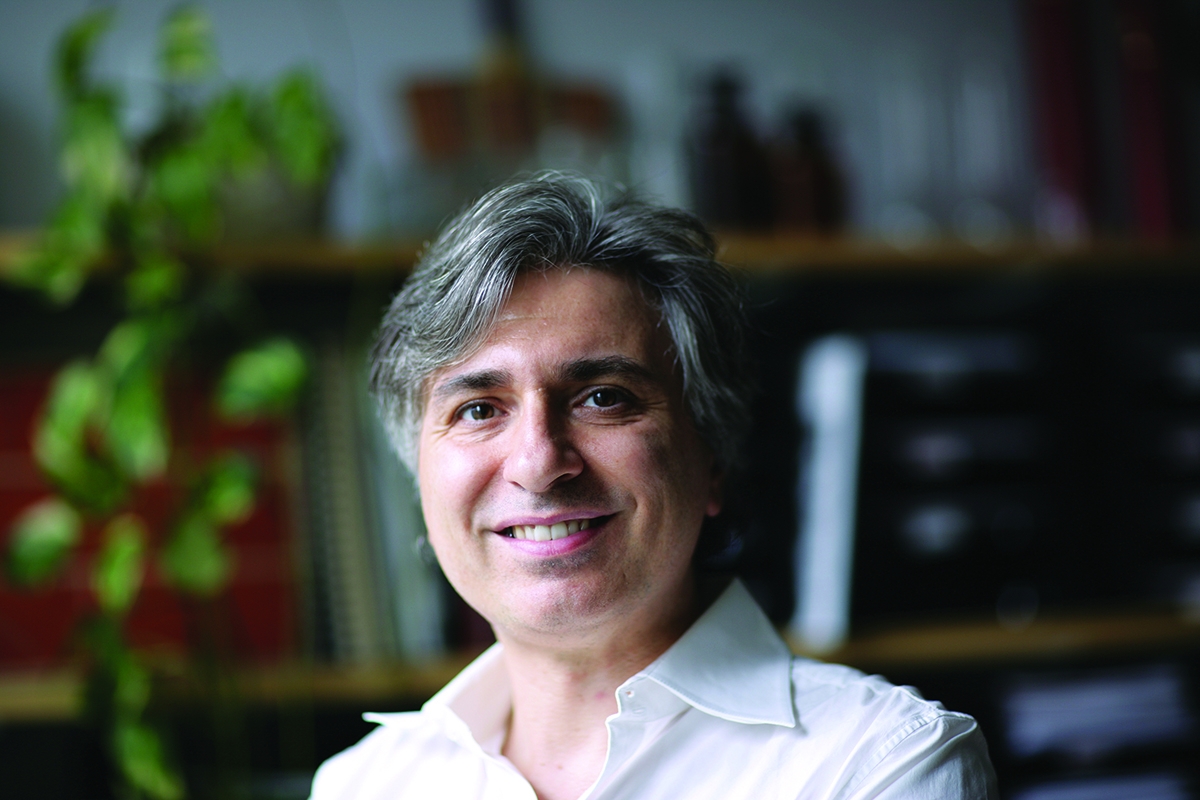
Dr. Stefano Rivella
Transfusions offer a lifeline to children who have the blood disorders sickle cell anemia and beta-thalassemia, but they are often cumbersome and hardly a panacea. For these children, whose conditions are characterized by misshapen or too few of the oxygen-carrying molecules present in all red blood cells, their only hope for survival is bone marrow transplants.
But that, too, is fraught with risk. A bone marrow transplant requires a compatible donor — a minority of patients locate one — and a match doesn't guarantee a successful outcome.
Stefano Rivella, an associate professor of genetic medicine in pediatrics at Weill Cornell, believes that a new gene therapy technique that he's developing with collaborators may cure these conditions.
Sickle cell anemia and beta-thalassemia result from a mutation in the beta-globin gene, which is charged with producing an essential part of hemoglobin molecules that carry life-sustaining oxygen throughout the body. A piece of DNA, called the locus control region, activates the beta-globin gene after a baby is born, and shuts down a second gene, called the gamma globin gene, which is tasked with making a critical part of fetal hemoglobin when a baby is in the womb.
Dr. Rivella is investigating whether he can combine a classical gene therapy approach with an innovative technology. Using gene therapy, Dr. Rivella will insert a new and functional copy of the beta-globin gene into patient cells while also introducing a new gene that reprograms the genome in the locus control region. By reprogramming the genome, Dr. Rivella hopes to shut down the mutant beta-globin gene and reactivate the gamma globin gene, enabling the gamma globin gene to generate fetal hemoglobin, which can also sustain life. He's theorized that a genetically modified HIV virus that's been stripped of its viral properties could be used to transmit these new instructions to the genome. This approach would leave behind two healthy, therapeutic genes, while shutting down the toxic mutant gene.
The Daedalus Fund will support Dr. Rivella and his lab's efforts to develop this modified virus and test its efficacy in petri dishes using patient-donated cells.
"I cannot be more grateful to Weill Cornell, Dean Laurie Glimcher and Larry Schlossman for sponsoring our faculty's research ideas and helping us move them forward," Dr. Rivella said.
Ending Juvenile Blindness
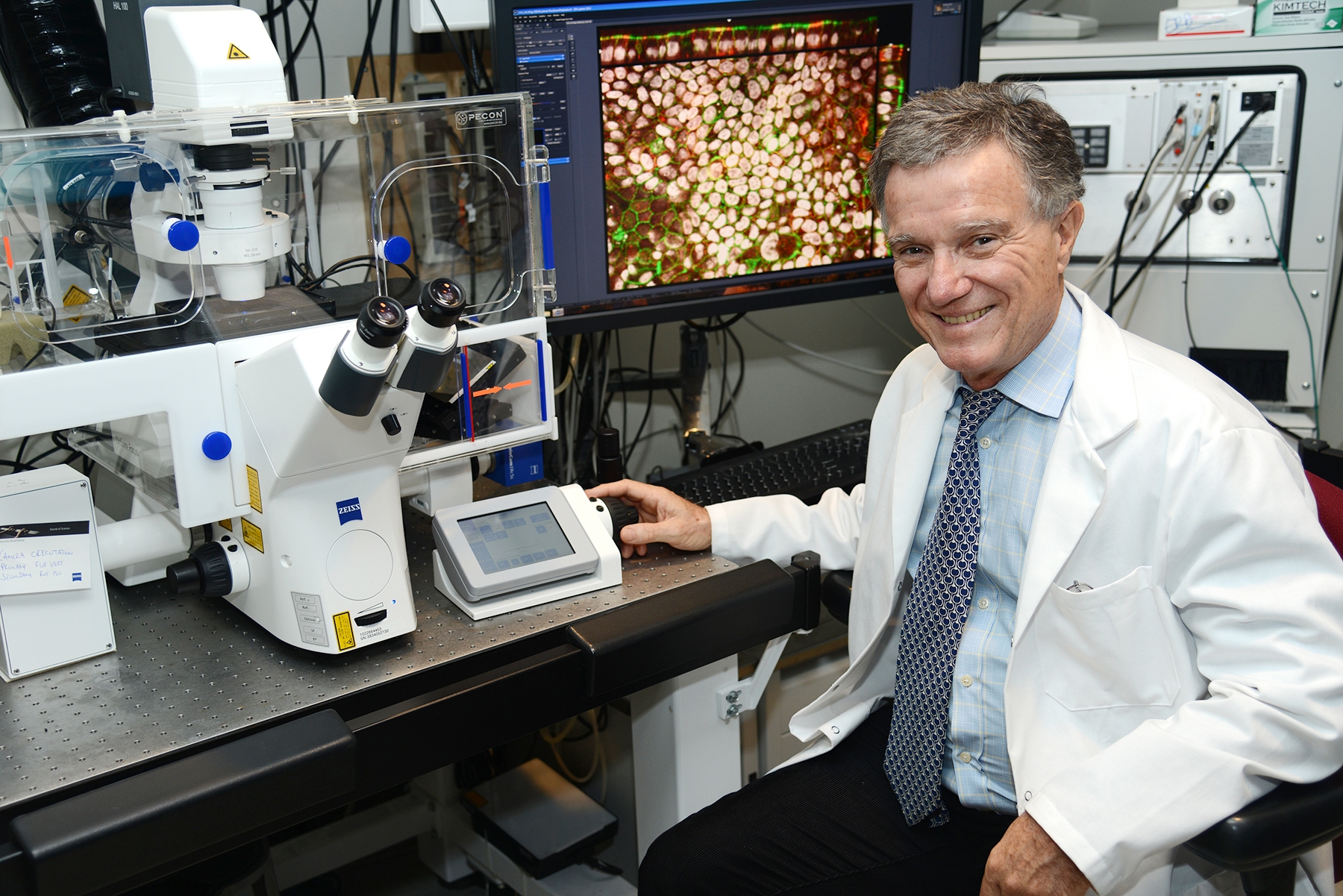
Dr. Enrique Rodriguez-Boulan
For children born with sight, the thought of losing their vision by the time they are 30 years old is terrifying. But that's exactly what happens with children born with Stargardt disease, the most common form of inherited juvenile macular degeneration for which there is no treatment.
Some 100,000 Americans have Stargardt disease, which is characterized by a genetic mutation that enables a yellowish-brown pigment composed of mostly fats to accumulate in the eye. The pigment, known as lipofuscin, is a product of cellular wear and tear that is often found in muscle, kidney, liver, heart and nerve cells. Lipofuscin detected in the eye is particularly worrisome, says Weill Cornell cell biologist Enrique Rodriguez-Boulan. Researchers believe it to be toxic to a support cell for the light-sensitive photoreceptors cells that allow people to see, known as the retinal pigment epithelium.
Using basic science methods, Dr. Rodriguez-Boulan, the Charles and Margaret Dyson Professor in Ophthalmology Research, and collaborators Dr. Marcelo Nociari, an assistant research professor of immunology in ophthalmology, and Dr. Fred Maxfield, chairman of Biochemistry and the Vladimir Horowitz and Wanda Toscanini Horowitz Distinguished Professor in Neuroscience, discovered that the drug beta cyclodextrin can successfully bind to lipofuscin and remove it from the eye. The Daedalus Fund will enable the research team to see if the same effect is true in animal models before blindness occurs.
"So far we have been able to show that these drugs remove lipofuscin from the eye, but that's not the same as showing that we can prevent model mice from becoming blind," said Dr. Rodriguez-Boulan, also a professor of cell and developmental biology and of cell biology in ophthalmology. "We're getting a chance to go for it and try to cure the blinding disease. This is a big step forward in showing that this is eventually good for humans."
Dr. Rodriguez-Boulan hopes that his findings can be applied to age-related macular degeneration, a leading cause of vision loss among people age 65 and older that is not well understood and has no treatment. While lipofuscin accumulates dramatically in the retinal pigment epithelium with age, it's not clear if it also plays a role in this condition. Dr. Rodriguez-Boulan hopes that a successful treatment for Stargardt, where lipofuscin is a clear cause of disease, could ultimately be tested on macular degeneration patients to see if it makes a difference.
A New Bone Marrow Transplant
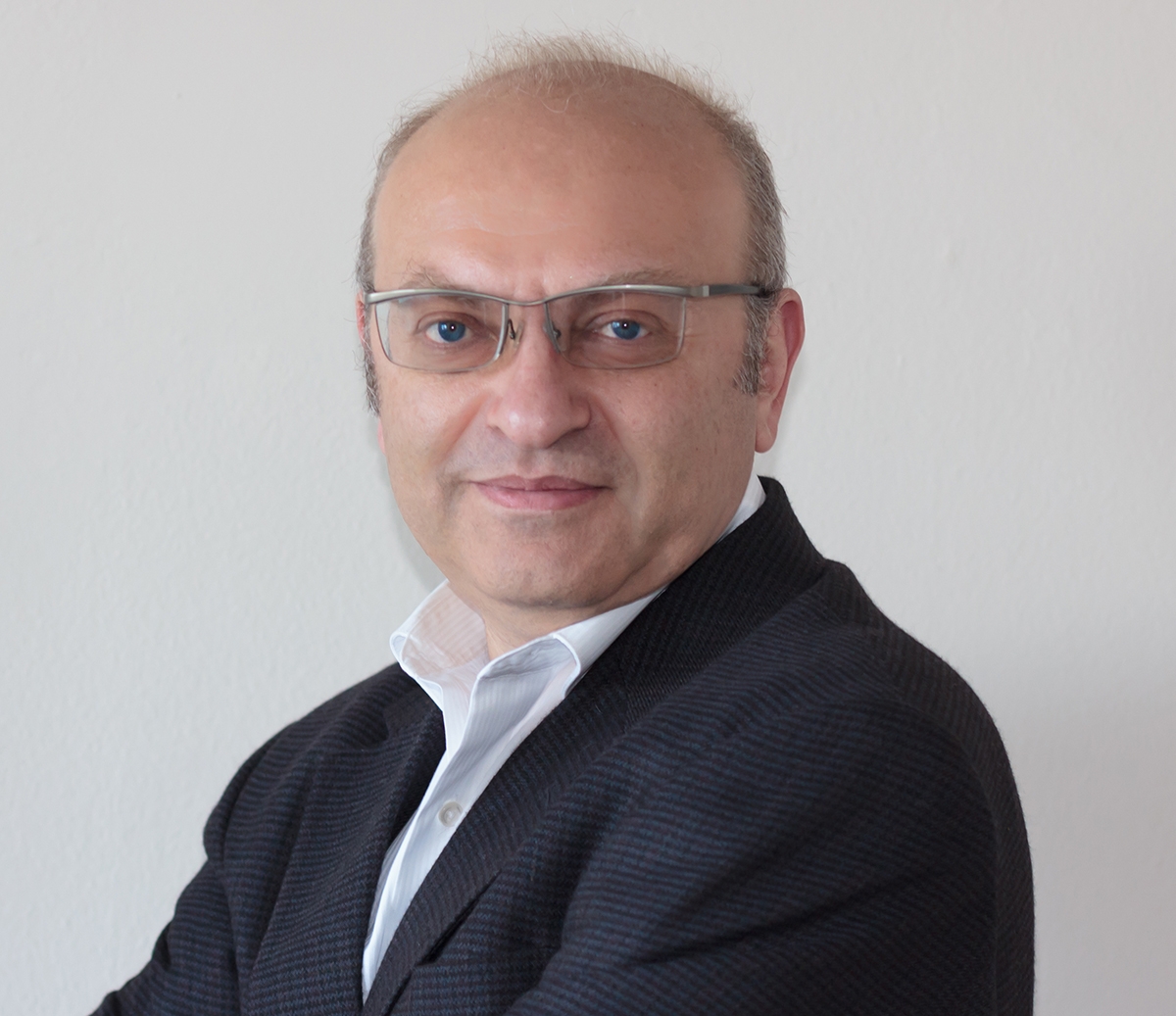
Dr. Vladislav Sandler
Search a textbook for adult hemogenic endothelial cells and one would likely come up empty. In scientific literature, these cells — which give rise to blood and enable the body to regenerate it for the duration of life — exist only during fetal development and disappear soon after birth.
But Weill Cornell biologist Vladislav Sandler is challenging conventional wisdom. After scouring blood vessels in various organs through the human body, Dr. Sandler recently spotted a small cluster of cells in an adult liver that has the same signature of these progenitor cells — including their regenerative abilities. Using advanced research techniques, Dr. Sandler, a faculty instructor at Weill Cornell who is being recruited for the Department of Medicine, demonstrated that adult hemogenic endothelial cells can reactivate and generate blood cells that closely resemble bone marrow stem cells — the building blocks of blood necessary for life. He then transplanted them into immune-deficient mice and discovered that the engineered cells were capable of regenerating the rodents' blood system, just as they do during embryonic development. The Daedalus Fund grant will allow Dr. Sandler to further test these cells in mice to determine how fast they take hold and how many are needed for successful regeneration.
If the regenerative and transplantable properties of adult hemogenic endothelial cells can be replicated in humans, the finding could benefit the millions of patients with blood disorders — thalassemia, sickle cell and other genetic diseases, blood cancers and even infections like HIV — for which the most common cure is matched bone marrow transplants. Dr. Sandler hopes that patients' own cells can be used to generate blood stem cells free of the defects that caused the original disease, and then re-transplanted into the patients' bodies to treat their conditions.
"This grant is the greatest validation to any doubts that I may have had," Dr. Sandler said. "This gives me an opportunity to check this hypothesis. And it says that Weill Cornell is interested in promoting its own people, giving them the opportunity to do something both fundamentally important for science and potentially important for patients."

